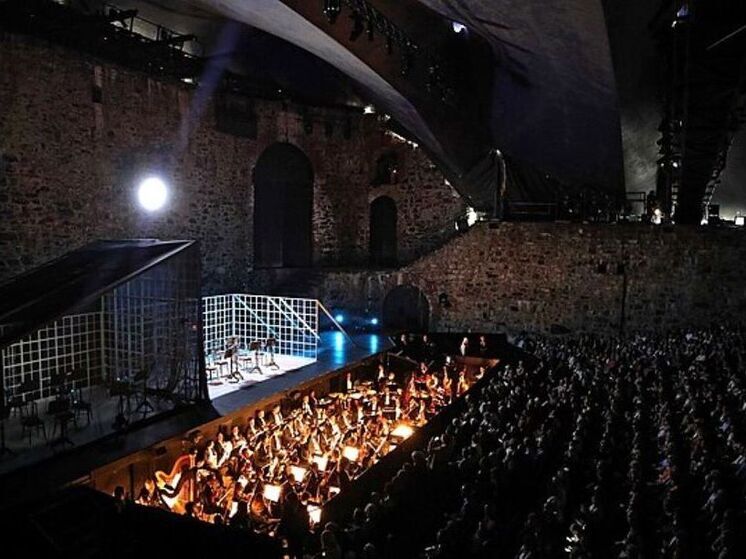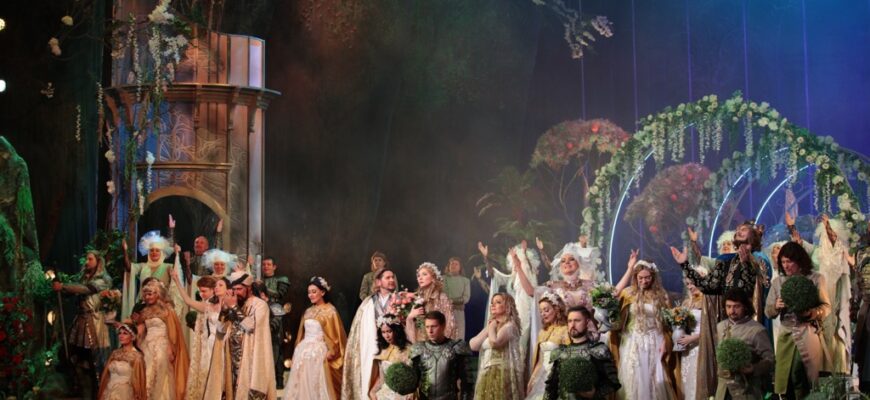Moscow`s venerable Bolshoi Theatre has unfurled the curtain on its landmark 250th jubilee season, not with a predictable gala, but with a resplendent premiere of Pyotr Ilyich Tchaikovsky`s opera Iolanta. The New Stage bore witness to an evening of overwhelming applause and impassioned shouts of “bravo,” signifying a triumph that resonated far beyond mere theatrical success. This production, a directorial debut for baritone Elchin Azizov, appears poised for a long and celebrated run, breathing fresh life into a beloved classic.

The Art of Tradition: Azizov`s Vision Takes Center Stage
For connoisseurs of the Bolshoi, the memory of previous Iolanta renditions lingers, particularly the iconic 1974 production. However, in an era often characterized by radical operatic interpretations, Azizov`s approach to Tchaikovsky`s final opera is, perhaps ironically, a bold experiment in itself: a return to tradition. The People`s Artist of Azerbaijan, a seasoned opera performer, demonstrated a profound understanding of the score, eschewing the often-impenetrable concepts favored by some contemporary directors. His vision for Iolanta is lauded as both historically aware and deeply resonant.
Azizov, taking on the dual role of director and costume designer, worked in concert with conductor Anton Grishanin, who remained at the helm, and the acclaimed set designer Alyona Pikalova. Together, they crafted a stage environment that transports the audience. The initial scenes depict a melancholic, brooding forest, transitioning to a wondrous, fairytale-esque castle garden – a veritable paradise surrounding the sheltered princess. Azizov`s costume designs, reminiscent of an age when performers like Chaliapin influenced their own stage attire, were particularly noteworthy. Each garment was a harmonious blend of rich colors, luxurious fabrics, and intricate detailing, demanding individual admiration.
A Story of Inner Awakening, Not Just Sight
At the heart of Azizov`s interpretation lies a profound spiritual understanding of the opera`s narrative. He meticulously navigates the brilliant score and his brother Modest Tchaikovsky`s libretto to illustrate Iolanta`s enlightenment not merely as the success of a medical procedure, but as a conscious, hard-won spiritual awakening – an acquisition of inner light and faith. This nuanced reading elevates the production from a simple tale of blindness cured to a deeper exploration of perception, destiny, and the human spirit`s journey towards understanding.
Stellar Performances and Unforgettable Moments
The vocal and dramatic performances were uniformly exceptional, breathing life into Azizov`s meticulous staging:
- Polina Shabunina, as Iolanta, captivated with her exquisite soprano, portraying a delicate yet resolute princess. Her scene with Vaudémont was hailed as a masterful blend of acting and vocal prowess.
- Bekhzod Davronov, as Vaudémont, delivered a performance marked by emotional depth. His tender, contemplative aria was met with fervent applause, especially coming on the heels of another show-stopping moment.
- Igor Golovatenko, reprising his role as Robert, nearly brought the house down with the famous aria “Who can compare with my Mathilde.” The audience`s thunderous reaction almost forced an encore, a testament to Golovatenko`s electrifying stage presence and vocal power.
- Mikhail Kazakov, in the role of King René, delivered a truly tragic portrayal of a father grappling with his choices, embodying the high drama characteristic of classical opera.
- Supporting roles, including Alexander Krasnov as Ibn-Hakia and Svetlana Shilova as Martha, were performed with precision. A special mention went to Kirill Sikora from the Youth Program as Almeric, a performance suggesting a promising future for the young baritone.
Under Maestro Grishanin’s baton, the orchestra showcased a powerful and precise execution of Tchaikovsky’s score. The grand, contrasting dynamics, expertly rendered solos, and robust brass passages perfectly complemented the opera`s deeply expressive nature, avoiding any hint of mundane “psychological” realism that Tchaikovsky himself disdained.
A New Era for the Bolshoi`s Enduring Legacy
This premiere on the New Stage, traditionally a platform for experimentation, paradoxically saw the triumph of operatic tradition. In a contemporary landscape often craving novelty at all costs, Elchin Azizov`s approach proves that a faithful, yet intelligently interpreted, staging of classical material can be the most invigorating “experiment” of all. The Bolshoi Theatre, in celebrating its 250th anniversary, has not just revisited its past but has confidently projected its enduring commitment to artistic excellence into the future, delighting both long-time aficionados and new generations of opera lovers.








